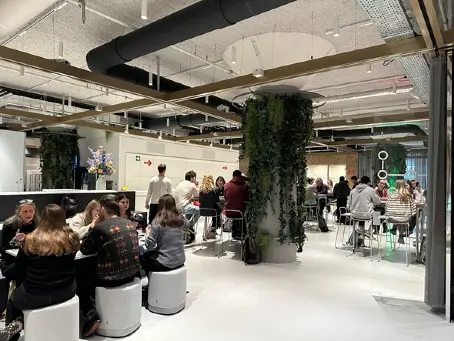
Groningen, Netherlands
AI in Education
When:
29 June - 03 July 2026
Credits:
2 EC
Read more
Social Sciences
When:
21 July - 08 August 2024
School:
Institution:
University of Amsterdam
City:
Country:
Language:
English
Credits:
6 EC
Fee:
1750 EUR

Due to their environmental impact, cities play a crucial role in the transition towards sustainable societies. Despite the fact that they occupy only 3% of the global terrestrial surface, cities house more than half of the world’s population, consume 7% of its natural resources, and are directly and indirectly responsible for 60 to 80% of global greenhouse gas emissions (UNEP, 2012). The urban environment thus acts as a nexus of material flows and nodes for energy, water, consumption and production. Cities are key leverage points that demand our focus if we are to accelerate the necessary transition to circular and sustainable systems, both locally and globally. Learn how to connect urban material, water, and energy flows to build a truly sustainable city. This programme is developed in collaboration with Metabolic, a consulting and venture building company that uses systems thinking to tackle major sustainability challenges.
In this course, students are taught how to leverage the potential of cities via a new paradigm for urban planning and design: urban metabolism. While this concept has been around for over 50 years, recent interest in it has rejuvenated the fields of urban studies, industrial ecology, and architecture. Urban metabolism can be defined as the sum total of the technical and socio-economic processes that occur in cities, resulting in growth, and production of energy, materials, and waste. The city is viewed by its ‘material flows’, generally defined into water, energy, materials (including food), and waste. These flows consist of inputs (local, regional, and global inflow of resources), throughputs (energy required to transform these resources and waste produced by any process), and outputs (the material outcome of this process).
Abe Hendriks (MSc).
For current university students (Bachelors and Masters) in the arts and social sciences with a background in urban studies, earth sciences, and sustainability (and other related fields). Also open for working professionals with a desire to continue their education in this field.
This three-week interdisciplinary and hands-on course unravels the complexity behind truly sustainable urban development. The programme uses Amsterdam as case study for analysis and action.
Fee
1750 EUR, The tuition fee includes all course materials, excursions and events, lunch on class days and a public transportation card.
Fee
850 EUR, Approximate housing fee for the duration of the course. Arranging housing through our office is optional.
When:
21 July - 08 August 2024
School:
Institution:
University of Amsterdam
Language:
English
Credits:
6 EC

Groningen, Netherlands
When:
29 June - 03 July 2026
Credits:
2 EC
Read more

Utrecht, Netherlands
When:
06 July - 10 July 2026
Credits:
0 EC
Read more

Oslo, Norway
When:
29 June - 24 July 2026
Credits:
10 EC
Read more